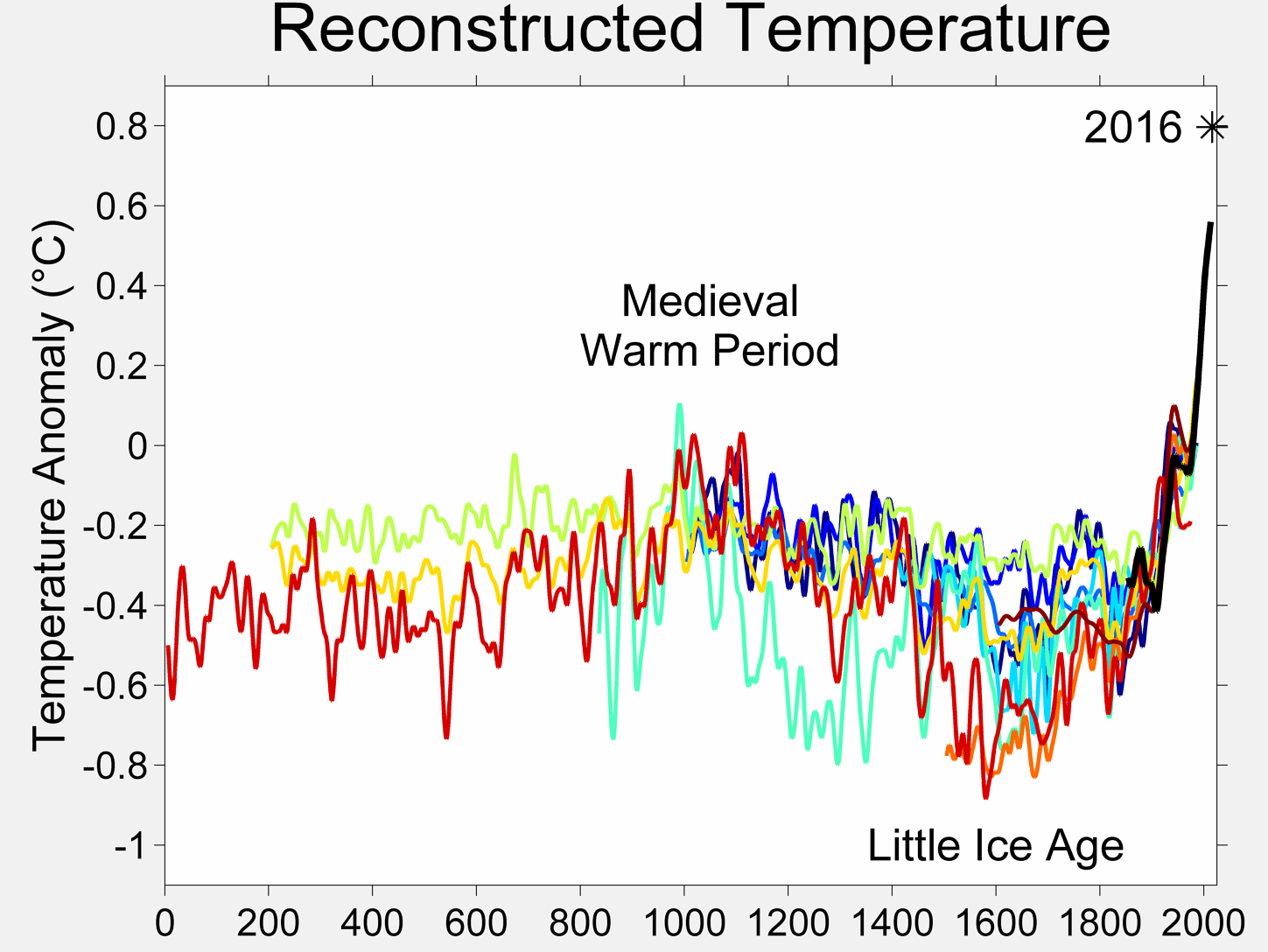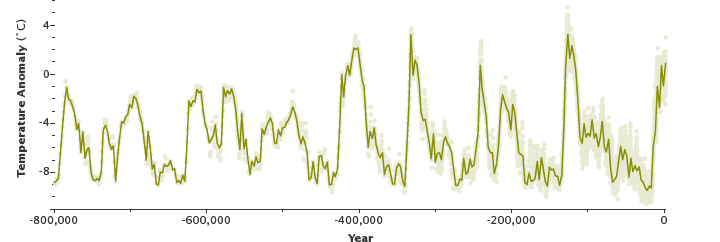No one is saying that the earth is going to be inhabitable for developed nations, anytime soon. There are several issues, though aside from that.
First - you look at a trend, and try to predict if its holding/increasing, or not - everything that scientists tell us is, that its holding and increasing. The thing with having a 2°C increase from the former 'pre industrial times' average temperature is, that it means a whole bunch of things - if you get above those levels.
Before getting into those, the 2°C is an increase of average tempertature, which means that the extreme spikes can be much higher. For the capital of my country up to 6°C higher temperatures on certain days in summer are predicted by 2050.
The most problematic thing thats going to happen according to models, are chain reactions, when certain frozen regions start to thaw, or certain icefields melt down. Those are called "tipping points" which have to do with ocean temperature, and a hopefully calculable amount of additional climate relevant gasses getting released, if a certain threshhold is reached. So this basically means, that the spike up should remain pretty steep and that it would be very hard, to stop or reverse the trend at that point. The best thing that humans have come up with for pushing that point a little into the future (if the paris climate goals arent kept in line with (currently 5 (smaller) countries in the world are on track with it, go 5 countries...

)), is planting trees, and then not harvesting them for energy (burning them again).
So - we mostly try to prevent that (rise more than 2°C) as humanity.
Even 2°C means, that afair around 60% of all inverterbrate life on earth basically dies out - please look up the actual value..

Now - what happens in addition to that, is the following. 2°C is an average, meaning - that in certain regions, higher average temperatures, become a real problem. You are basically talking lost yields from harvests, increased drinkable water issues, increased political pressures, and more people that are expected to flee the regions where they are from.
More political instability means increased resource prices, means - more competition preassure, means everything might get more expensive, and maybe increased chances of conflicts.
So if you want to look at that on the most baseline level - looking at charts - take your temperature graphs, but also look at predicted deplacement of populations.
Here is a short primer:
https://www.un.org/en/development/d...ocuments/250416_COLUMBIA_UNI_Susana_Adamo.pdf
Look at this for more context, but afair - no migration models.
https://interactive.carbonbrief.org...egrees/?utm_source=web&utm_campaign=Redirect#
Here a rough summery on the forecast migration pressures.
https://www.iom.int/migration-and-climate-change-0
There is also an issue if - f.e. a larger part of your countries economy is tourism related, and f.e. that tourism might be winter tourism, and the snow isnt sticking around. All kinds of effects like that.
Short summery is - its always less costly to try to stabilize the temperature increase earlier - but it is costly already, so nobody wants to do it. And in addition to that, the people who arent doing it - are at an economic advantage short term, which means - its more probable to work if "everyone has to do it" according to international agreements.
The problem is global, the effects will vary from region to region. The solutions arent pretty. And the prettiest ones revolve around - having yet another recession, basically.
That said peak oil is predicted to happen at around 2030, so something has to happen in terms of switching energy sources, and moving towards probably more energy efficient economies anyhow.
But - the timetables matter - in regards to the likely outcome.

US is an island continent. So migration pressure is moderate in comparison to some other countries. Direct effects in the US are higher than in Europe though.
That said, most impactful direct effects of climate change (meaning excluding migration pressures) in our lifetimes and the lifetimes of our children - in the developed world - would be to probably move a few cities because of sea level rise and extreme weather effects. Costly, but can be done. (The thing is, that most of the human population is actually situated around coastlines, or big water streams, so...), the issue in those two generations - is much more 'what happens to the people that cant buy themselves out of this, as societies'.
But also - everyone (apart from Alaska economically, but not environmentally

) would be better off, if increases were kept low.
The problem is, that this is a world scale problem, with a very high cost long term, and a configuration - that the last mover suffers least, short term. And with different risks in different regions.
With this, nobody just looks at one chart and says "well I guess we are fine then..".










